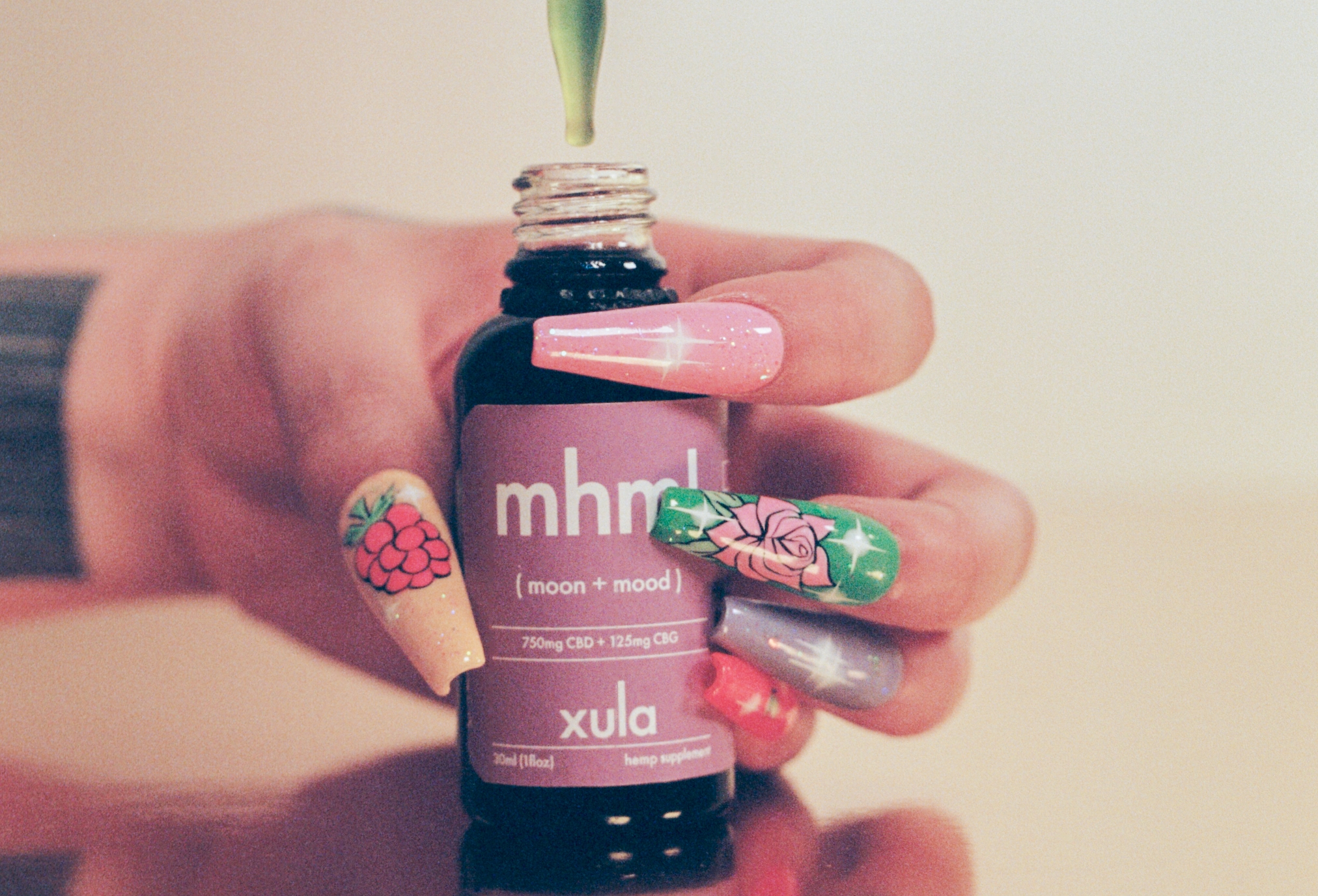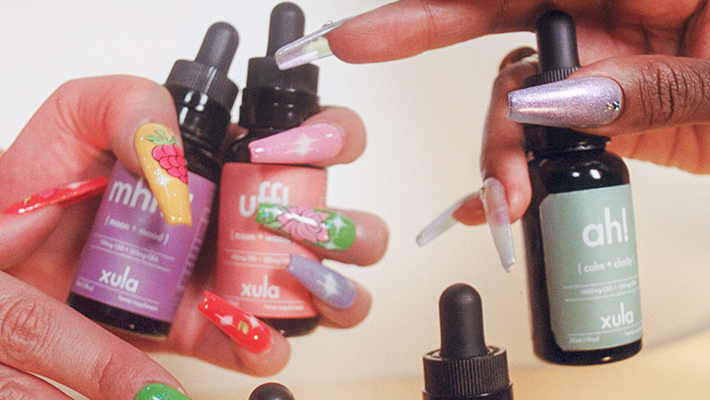
I’ll be the first to admit it: I’m skeptical of the majority of CBD products on the market. I’ve written about why before, but it basically comes down to three key factors:
- CBD is unregulated by the FDA, which means that manufacturers can misrepresent what’s actually in the product by putting whatever they want on the label. According to this report from Leafreport, only 42% of brands test almost all of their products for potency and share their third-party lab results with consumers. From the same report, only 13% of brands tested almost all of their products for purity — checking for microbial content, pesticides, or heavy metals.
- There is no consensus on what constitutes a “therapeutic” dose of CBD for aiding in the treatment of a variety of ailments. Many products on the market have what I like to call a “token dose” — a minimal amount of CBD is included so whoever is making the product can say it’s there. But low level doses likely don’t have have a measurable effect on the body. (CBD in the legit gummies, for example generally has at least 20mg CBD/ serving)
- Sourcing in CBD is an issue when it comes to quality. CBD that utilizes American-grown hemp or marijuana and is full or broad-spectrum is considered the best. (Here are some other shopping tips, for anyone who wants to dive deeper on this topic.)
That’s not to say I hate CBD. I’m just skeptical. In fact, I’m usually hesitant to say “yes” to even receiving CBD samples unless I have a satisfactory answer to the questions above. But when I heard that there was a new queer, femme, and Black and Latinx-owned CBD line, called Xula, from one of my favorite cannabis healers and personalities, Mennlay Golokeh Aggrey… Well, my ears instantly perked up.
I’m a devotee of Aggrey’s book, The Art of Cooking With Weed Butter, and a longtime follower of hers on social media. To me, she’s an anti-influencer influencer — one gets the sense that she walks the walk, along with talking the talk. She seems genuine and devoted to her study and practice of using medicinal herbs, including cannabis. Once the dosing and sourcing checked out, I knew that if any CBD product were to work, there was a good chance it would be Xula’s.

I was right. Xula’s products worked for me, particularly for my period aches and pains. I used the Uff! Moon + Womb oil during the first day of my cycle, which is when I experience heavy cramping and general lethargy. I was genuinely shocked to find that, within 30 minutes or so of ingesting the oil, my cramps had subsided. I also applied the Uff! Touch + Soothe balm to my midsection. Both products contain high doses of CBD and CBG — which are said to have anti-inflammatory properties — as well as passionflower, mugwort, black cohosh root, ginger root, lemon verbena, and lemon.
I couldn’t believe how well it worked. I was not alone.
“With our formulas, we had the theory behind it, we worked with the herbalist, and with my background studying cannabis for a few years, we thought, ‘This should really work for cramps,’ or for any of the other things we had formulations for,” Xula co-founder Karina Primelles told me. “But actually seeing the experience side, we were like, ‘Oh my god, this actually works!’ We sent initial formulas to friends and family members. As the feedback started to roll in, we were like, ‘Okay! we actually figured it out!’”
Both Primelles and Aggrey noted that the “only negative feedback” they received was that the Uff! oil tasted bitter, which is true. But it only lingers for a moment and the benefits outweigh whatever temporary discomfort there is. A strong ginger flavor helps, too.
As for the results, my personal response was so strong that I pressed Primelles to explain why Xula worked when so many other menstrual remedies have failed me.
“With that formula, CBD itself is said to help. There is a lot of research about CBD’s analgesic effects” she said, referring to how CBD is considered to be a treatment for pain management. “With cramps, specifically, it’s really interesting because there are these compounds called prostaglandins, which enhance contractions. There have been studies that have shown a correlation with women whose bodies produce a higher level of these compounds, they also have a higher level of cramps. CBD can inhibit production of those compounds.”
Both Primelles and Aggrey had a goal of making “specific products tailored towards specific ailments.” To do this, they identified specific combinations of herbs and other plants with the goal of getting their future customers more in tune with plant medicine in general, not just cannabis.
“Where we saw this opportunity was, how do we use cannabis, and CBD specifically, as this entry point to take that medicine more seriously?” Primelles noted.
In the case of the Uff! formula, to give an example, the duo consulted a variety of healers with decades of practice, including Indigenous healers who have strong cultural ties to using said plants medicinally. They settled on plants that are anti-inflammatory, cooling, and increase circulation.

There are other worthy products in the Xula line-up besides the Uff! formulas. I enjoyed the Mhm! Moon + Mood formulas as well — feeling like they gave me back a little pep in my step that I was otherwise missing at that time of the month. I am also a regular CBD oil-taker, which I use to treat anxiety, and found that the Ah! Calm + Clarity blend allowed me to chill out without feeling too tired, a tricky balance for any anti-anxiety remedy regimen in which most active ingredients also put me to sleep.
Beyond simply making CBD products that actually work, which can feel like a bit of an anomaly in the wider CBD market, it’s also notable that Xula is founded and owned by two non-white women in an industry where CEOs and founders are frequently white men with significant capital backing. Both Primelles and Aggrey are based in Mexico, where they met and developed their mutual love and education of medicinal plants, including cannabis.
Regarding their brand identity and how it intersects with their personal identities, Aggrey says she and Primelles have gone back-and-forth over how exactly to position their products.
“We had this conversation where we said, ‘Okay, do we want to talk about being queer, Latinx and Black-owned? Or do we want to talk about high-grade, organically grown, small-batch?’” she said. “It has been a little bit of a struggle because a lot of people just want to talk about it being queer, Black or Latinx-owned and not as much about how we are crafting a really special product.”
Primelles also points out how this has been a natural advantage for Xula. “We were also talking about how we don’t want to be the dominant, or common, kind of founder. When you’re not the dominant form, it gives you the space to see things differently and, consequently, produce different products. It shows in the things we vibe with, the content we produce, and the products we think about creating. In a sense, that’s a blessing or an advantage in having that perspective.”
“Inclusivity comes from this idea of when everyone is represented it’s better for the collective. It’s not just ‘We’re the minorities and we want to be included!’” Mennlay added. “We have something special and unique to offer. This should be the norm, this should be the standard and this is why: look what we can bring to the table!”
If this is what the future of plant medicine looks and feels like, sign me up. Xula has turned me back into a CBD believer.
